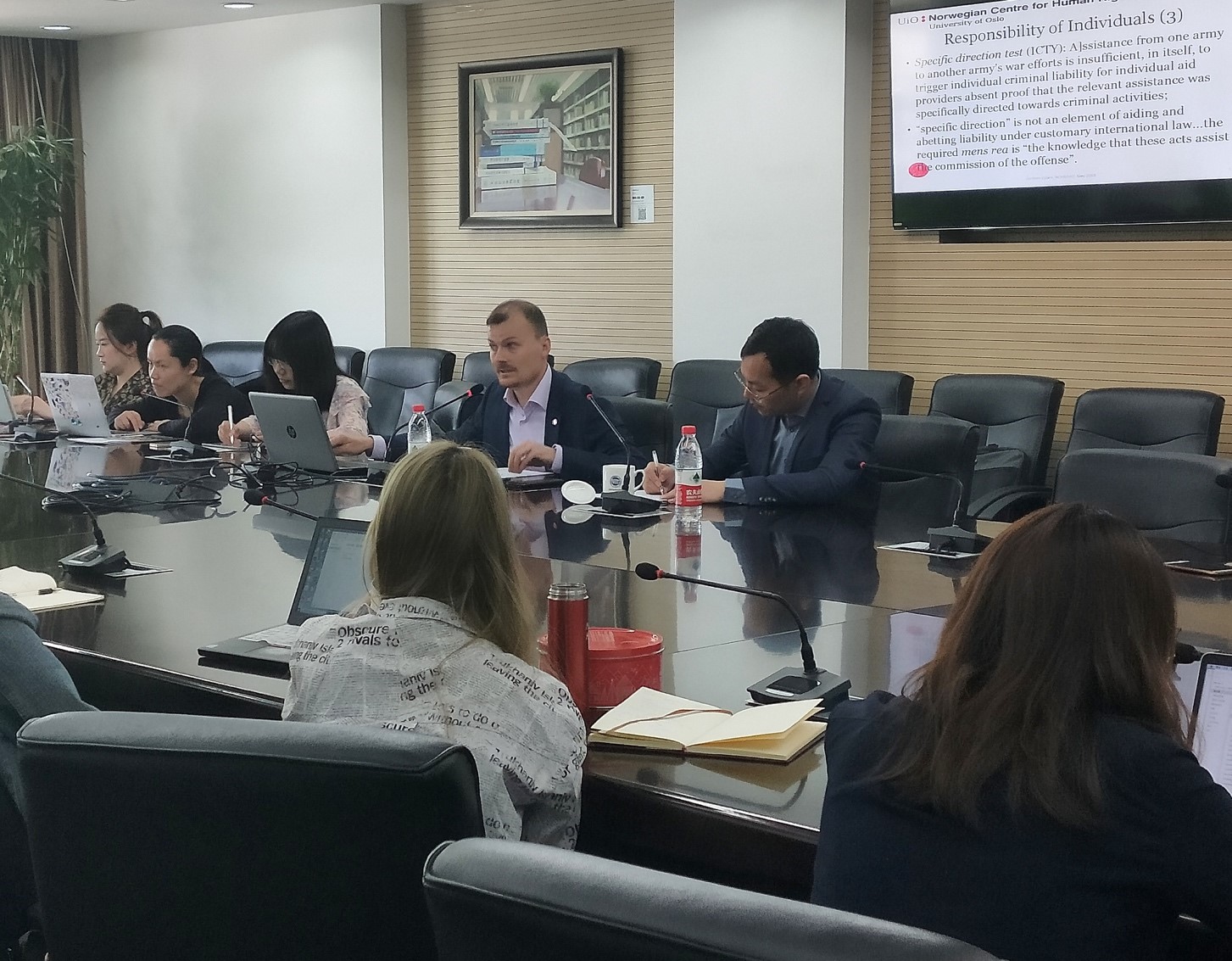The Concept of Control in International Liability Law Successfully Held in Wang Tieya's Lecture Series on International Law
Date:2019-06-24
The concept of "control" in International Liability, Wang Tieya's Lecture Series on International Law, was hosted by Gentian Zyberi, Professor at the University of Oslo Norway and formally held in room 307, (Leo) Koguan Building, Peking University law school at 10 am, May 9.
Gentian Zyberi, Professor of Human Rights Center at the University of Oslo Norway. He has worked at the Amsterdam centre for international law at the university of Amsterdam and the Dutch institute for human rights at the university of Utrecht and has twice served as defence counsel in cases before the international criminal tribunal for the former Yugoslavia.
Over the past 15 years, Professor Zyberi's research, publishing and teaching activities have been conducted mainly in the Netherlands, Norway, the United States, China and Albania, covering international human rights, international humanitarian law and international criminal law. Professor Zyberi's current research focuses on the contribution of international courts and tribunals to the interpretation and development of international rules and principles of human rights and humanitarian law, the protection of community interests by international law, and transitional justice.
Professor Zyberi has a long history with Peking University law school. In 2010, he taught international criminal law at Peking University. In 2018, he returned to Peking University to give a keynote lecture. At the beginning of this lecture, the host Professor Chen Yifeng extended his sincere welcome and thanks to Professor Zyberi who came from afar again.

In the overview part of this lecture, Professor Zyberi briefly introduced the theoretical framework and methodological issues of remaking the concept of "control", and made a distinction between state responsibility, individual criminal responsibility and organizational responsibility to be developed.
As the secondary rules, international responsibility focuses on the application of primary rules, such as the prohibition of mass atrocities, which is closely related to the practice of international and regional courts.
Prof Zyberi then analysed what "control" means. First, control is often associated with the exercise of jurisdiction and power; Second, the power associated with control can usually have an impact on people's behavior and the course of events; Third, control relates to accountability requirements. Therefore, the identification of "control" in the distribution of international responsibilities needs to analyze and evaluate the interaction between different actors. Two common identification methods are a "cause-effect" approach and a "contribution" approach respectively.According to Professor Zyberi, this theoretical framework also faces some challenges based on the complexity of actors' roles and inter-agent relationships :(1) national, international organizations and individual behaviors are affected by many factors; (2) in cases involving international and domestic levels, the boundary of authority between different actors is blurred; (3) the characteristics of the crimes of mass atrocities such as aggression, genocide, war and crimes against humanity.
Next, Professor Zyberi focused on the identification of responsibilities of different actors such as states and individuals. In the national responsibility part, Professor Zyberi introduced the standard of "effective control test" applied in "Nicaragua case" and “overall control test” applied in international criminal tribunal for the former Yugoslavia problem. Then he explained the standard of “overall control test” applied in the case of former Yugoslavia, he also emphasized the relationship between the national prevention duty and responsibility. In the section of personal responsibility, Professor Zyberi explained the forms of crime such as direct perpetration, co-perpetration and command or superior responsibility respectively.
Finally, Professor Zyberi pointed out that the importance of the concept of "control" in international liability law comes from its key role in liability distribution and compensation determination. Further theoretical efforts are needed to solve the problem of "control" in international criminal justice in the complex situation where domestic authorities are intertwined with international relations and under the emerging development of artificial intelligence and cyberwarfare.

The second half of the lecture provided ample opportunities for students to ask questions. Professor Zyberi answered questions about the ambiguity of the concept of "control", the definition of "direction" and "control", the elements of crimes against humanity and the conditions for the use of countermeasures. After the lecture, Professor Zyberi took a photo with the teachers and students participating in the lecture.
Translated by: Luo Zhen
Edited by: Xie Zhao



